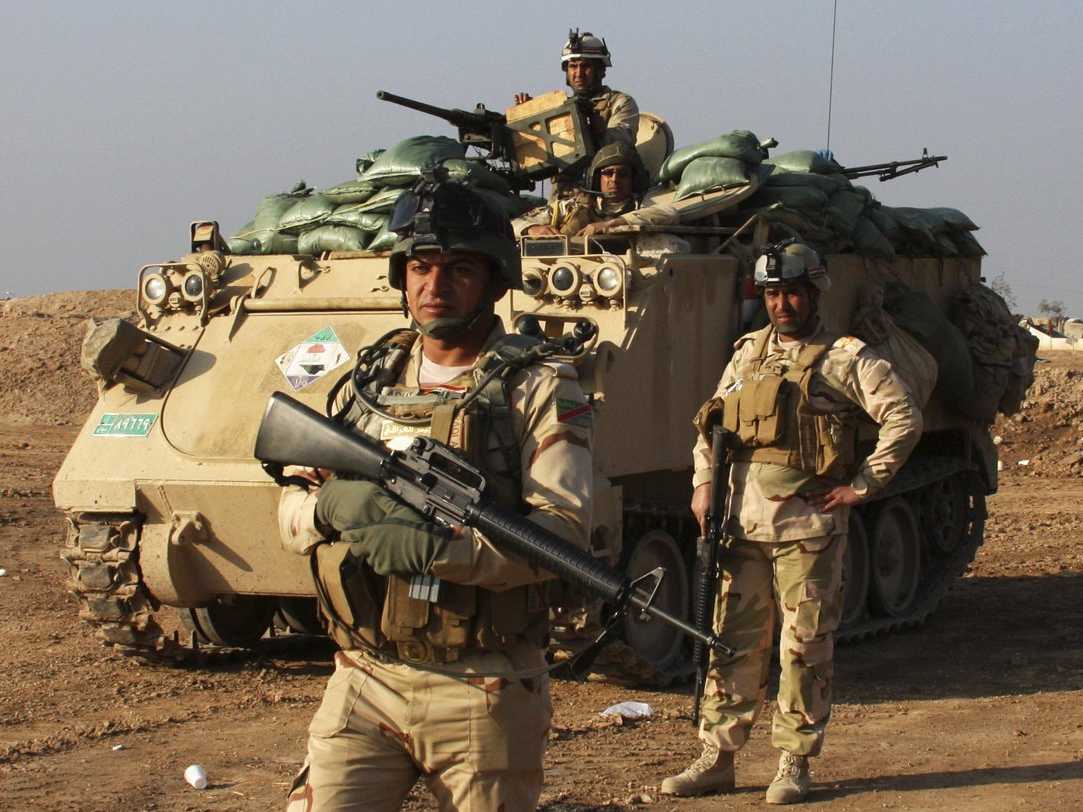
PENTAGON — The Chairman of the Joint Chiefs of Staff said that Iraqi Security Forces (ISF) — in their current state — were capable of defending Baghdad on their own from advancing forces of the Iraq and Syria Islamic State (ISIS or ISIL) but unlikely to retake lost territory without help.
“Will the Iraqis be able at some point be able to go back on the offensive and retake the part that they lost? That’s a really broad campaign quality question,” Gen. Martin Dempsey said in a Thursday briefing with reporters in the Pentagon.
“Probably not by themselves, but that doesn’t mean we’d provide kinetic support — I’m not suggesting that’s the direction that this is headed.”
Dempsey said the ISF was regrouping following a rout of forces in northern Iraq that quickly fled from the advance of the ISIS militants.
“Some initial insights are that the ISF is stiffening, that they’re capable of defending Baghdad, that they would be challenged to go on the offense — mostly logistically challenged,” he said.
ISIS too is facing logistical challenges as it pushes further South from its holdings in — what some reports say — is an attempt to encircle Baghdad.
“The insurgency after some initial gains, in collaboration with other Sunni groups in northern Iraq made some pretty significant and rapid advances,” Dempsey said.
“They’re stretched right now — stretched to control what they’ve gained and stretched across their logistics lines of communication.”
What remains unclear is the eventual scope of the U.S. role in the insurgency and its obligations to the Iraqis.
Dempsey and Secretary of Defense Chuck Hagel said the U.S. obligation was to protect American personnel and assets inside Iraq and advising the Iraqis.
“Approximately 200 military advisers are now on the ground. We’ve established a joint operation center with Iraqis in Baghdad,” Hagel said. “And we have personnel on the ground in Erbil, where our second joint operation center has achieved initial operating capability.”
The teams are not currently involved in combat operations but future involvement of U.S. assessment remains unclear.
Dempsey called ISIS a regional concern but that it could grow to a global concern. He that event, he didn’t rule out an escalation of U.S. combat involvement in the region.
“If the assessment comes back and reveals that it would be beneficial to this effort and to our national security interests to put the advisers in a different role, I will first consult with the secretary, we will consult with the president, we’ll provide that option, and we’ll move ahead. But that’s where we are today,” Dempsey said.
However, Dempsey caveated that in order for any military action to be effective, the Iraqi government had to have a degree of stability. The Iraqi government is still sorting through results from the most recent election in April to form a new government.
“The first step in developing that campaign is to determine whether we have a reliable Iraqi partner that is committed to growing their country into something that all Iraqis will be willing to participate in,” Dempsey said.
“If the answer to that is no, then the future is pretty bleak.”





